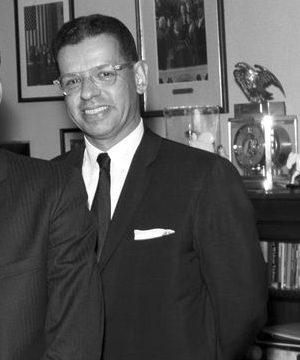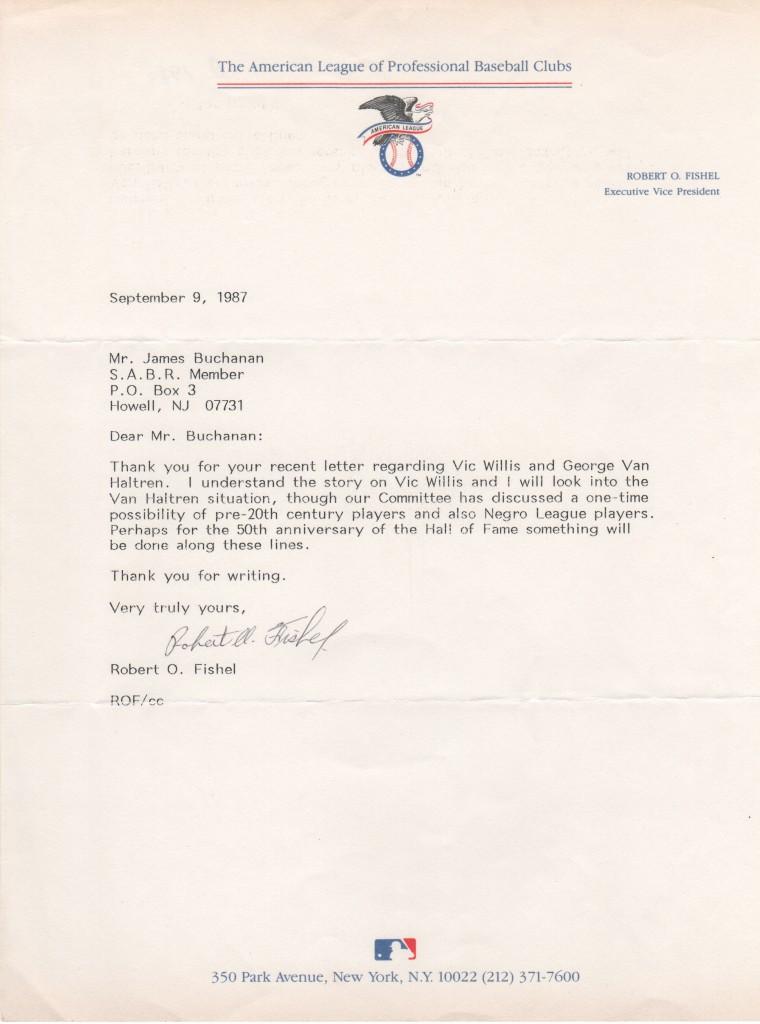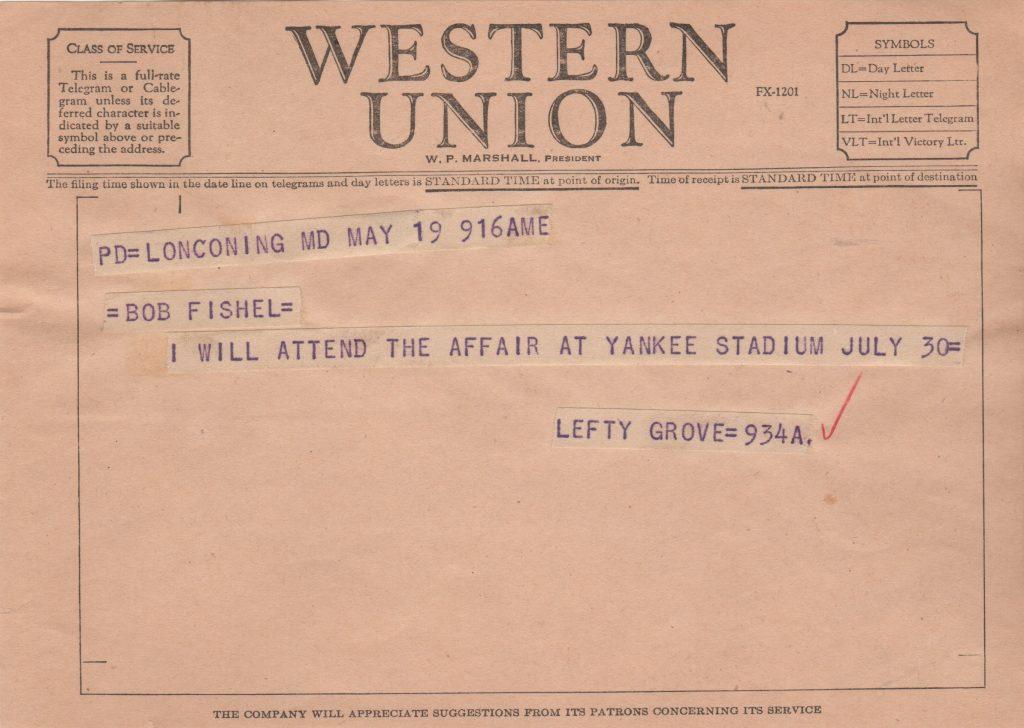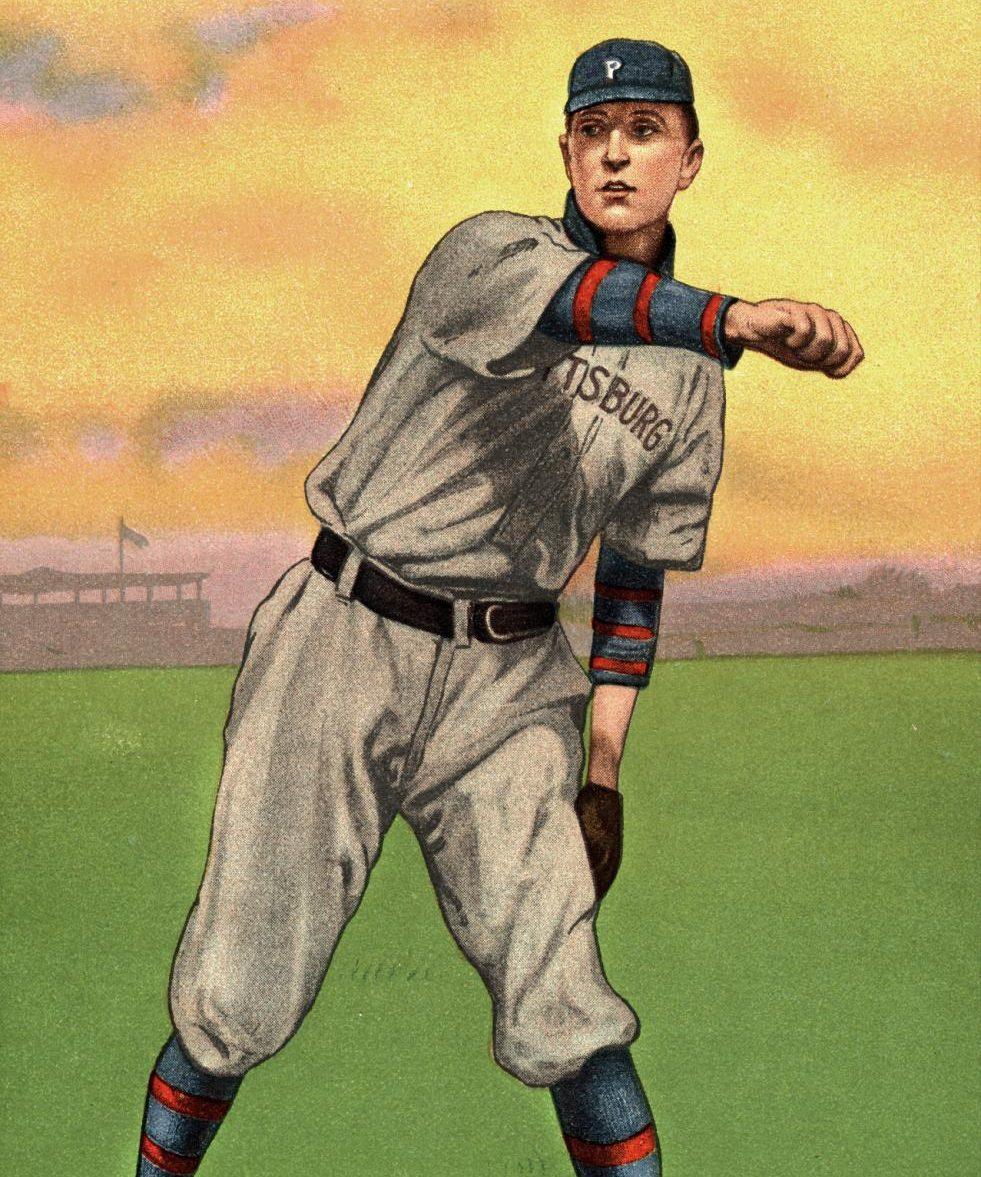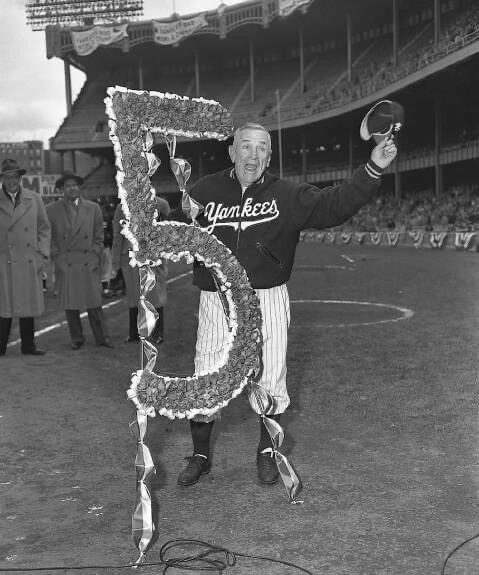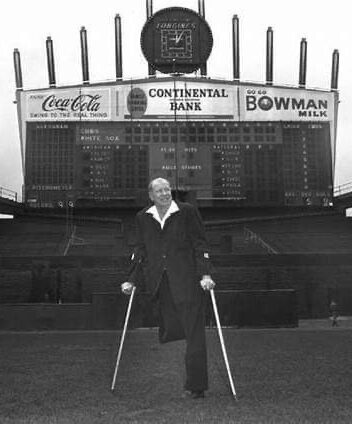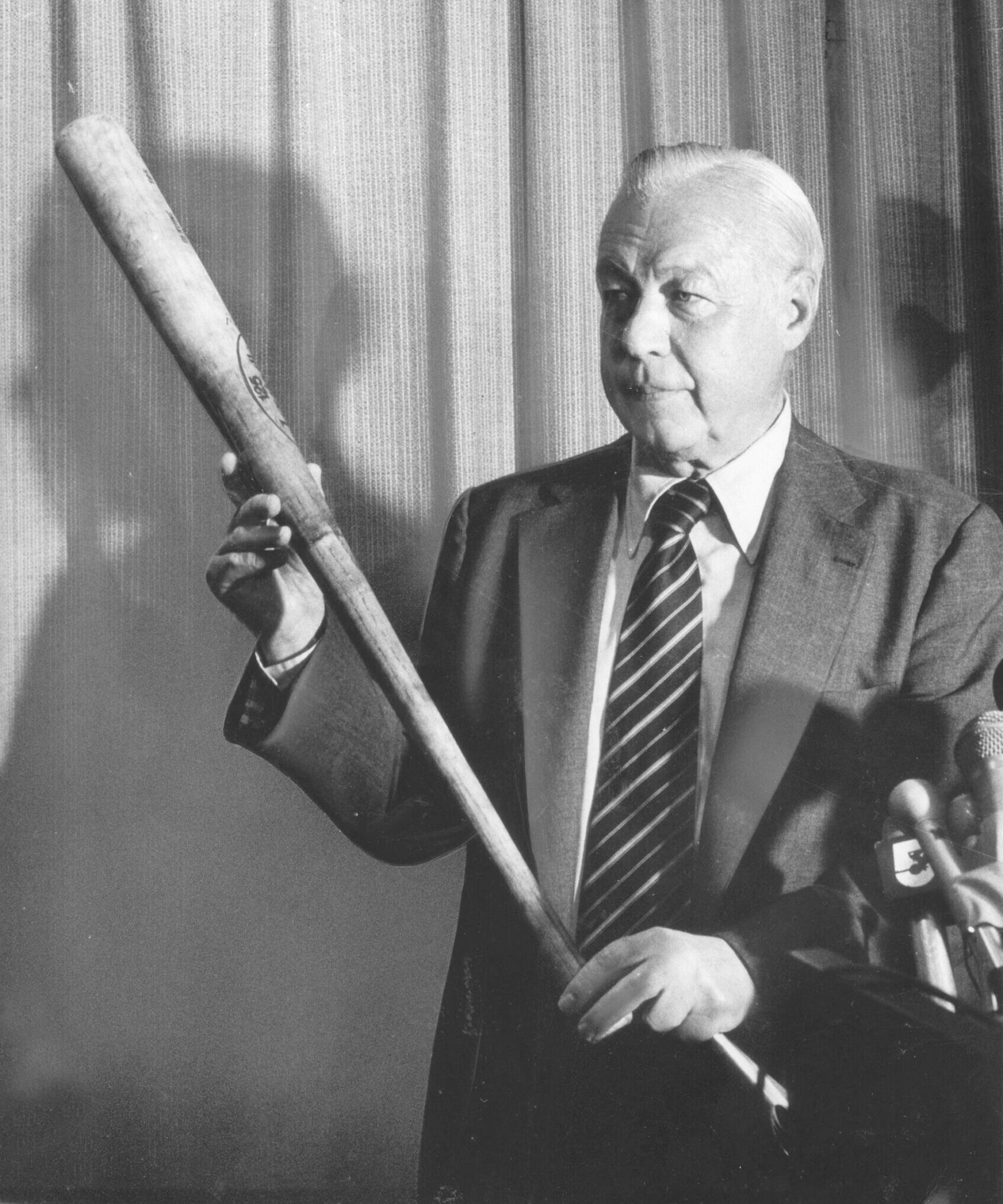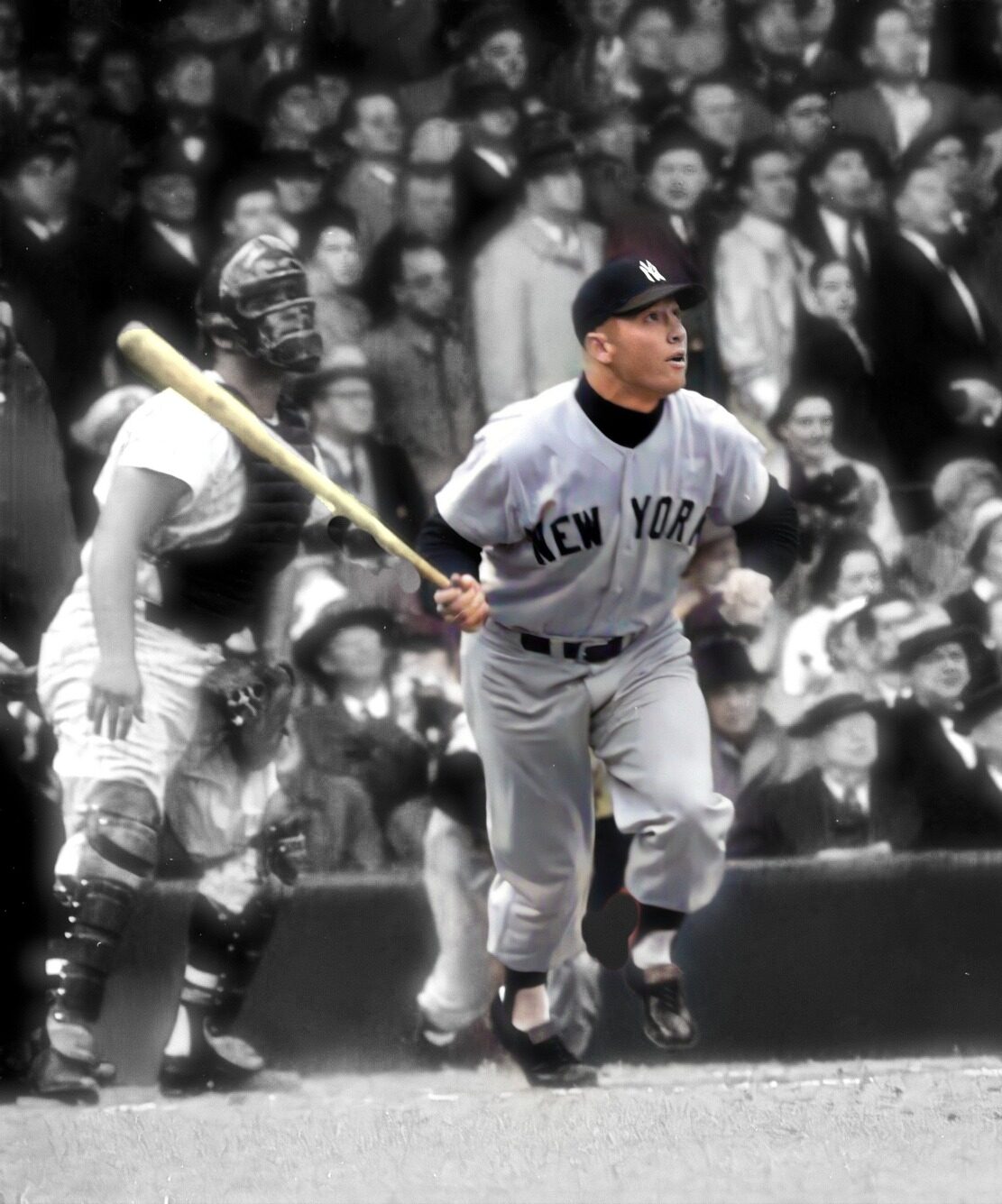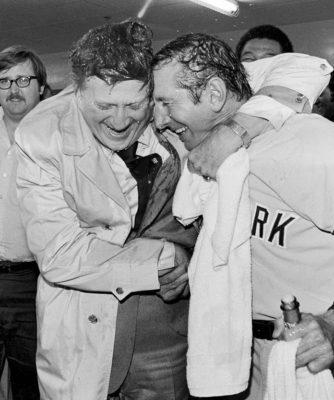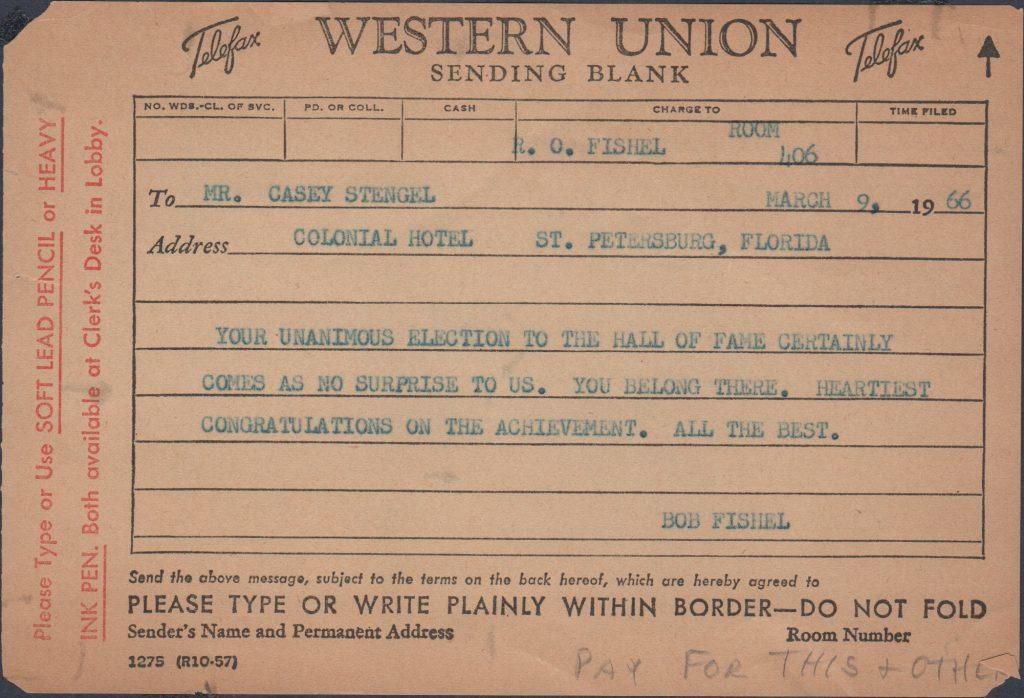
Casey Stengel guided the Yankees to 10 pennants and seven World Series titles in 12 years. After leading them to 97 wins and the AL flag in 1960, he was fired by the club. Understandably it left a bitter taste in his mouth.
Stengel returned to the dugout in 1962 as the skipper for the hapless expansion New York Mets. After the Mets lost 404 of the 582 he managed, Stengel retired for good.
Year after year the Yankees invited Stengel to their Old Timers’ Games. Each time he declined. Bob Fishel changed that in 1970. The Yankee public relations director included a handwritten note to The Old Perfessor suggesting the club might retire Stengel’s #37. At that tine the only Lou Gehrig (1939), Babe Ruth (1948), Joe DiMaggio (1952), and Mickey Mantle (1969) received the honor. Joining those four legends appealed to Stengel and he accepted the invite.
On August 8, 1970, Casey’s number was officially retired by the Yankees in a lavish ceremony. Fishel mended the relationship between Stengel and the team he led during a golden era. Stengel and Fishel remained friends throughout their lives.
In the collection is this original telegram from longtime Yankee executive Bob Fishel congratulating Casey Stengel on his inclusion to the Baseball Hall of Fame. Dated March 9, 1966 it reads, “Your unanimous election to the Hall of Fame certainly comes as no surprise to us. You belong there. Heartiest congratulations on the achievement. Bob Fishel”.
